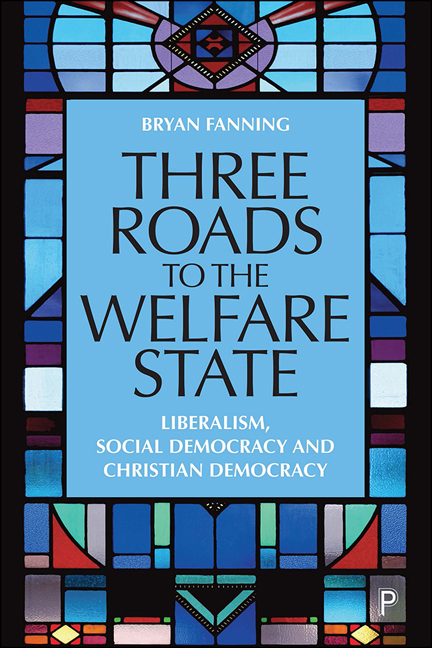Book contents
- Frontmatter
- Contents
- About the author
- Preface
- 1 Three roads
- 2 The invention of laissez faire
- 3 Utopian socialism
- 4 Reform liberalism and technocracy
- 5 Catholic social thought versus modernity
- 6 The case for social democracy
- 7 Social engineering versus democracy
- 8 The rise of neoliberalism
- 9 European Christian democracy
- 10 Legacies
- Notes
- Select bibliography
- Index
2 - The invention of laissez faire
Published online by Cambridge University Press: 13 May 2022
- Frontmatter
- Contents
- About the author
- Preface
- 1 Three roads
- 2 The invention of laissez faire
- 3 Utopian socialism
- 4 Reform liberalism and technocracy
- 5 Catholic social thought versus modernity
- 6 The case for social democracy
- 7 Social engineering versus democracy
- 8 The rise of neoliberalism
- 9 European Christian democracy
- 10 Legacies
- Notes
- Select bibliography
- Index
Summary
The eighteenth century witnessed in England and Scotland the birth of an intellectual case for what Karl Polanyi has described as a new utopian social and economic project. The proposed experiment was that economic liberalism should become the basic organising principle in society and that the organisation of human society should, for the first time in history, be subordinated to the principle of laissez faire, a term taken from a phrase in French ‘laissez Faire et Laissez passer, le monde va de lui meme,’ which translates as ‘let do and let pass, the world goes on by itself.’ Achieving this required that impediments to market forces such as laws and customs of providing welfare for the poor, which had operated for centuries, should be swept aside and that massive changes be made to how society was organised.
By the time of the industrial revolution, various social entitlements that had been rooted in membership of village communities, towns or guilds had become considerably undermined by economic change, until nothing remained but a poor law system of parish relief that had been introduced following the dissolution of the Catholic monasteries by Henry XVIII during the Reformation.
The 1597 and 1601 poor laws replaced an earlier charitable system run by Catholic religious organisations with a new national one administered through the parishes of the established Protestant Church. The relief system that developed had a number of components and it expanded over time. Church alms and charity were replaced with a right to support within one's parish. Parish relief funded by local taxes called rates assisted ‘the impotent,’ who were unable to work because of illness or old age. Sturdy beggars, who were fit to work, were to be punished for their indolence. Magistrates regulated wage levels in their areas. The old Poor Law was administered and paid for in the parish, and responses to poverty were influenced by local traditions.
Outdoor relief was controversially extended during late eighteenth century to include the ‘industrious poor’ in the south east of England who faced seasonal unemployment. Throughout the eighteenth century, parishes in many parts of England at times supplemented the wages of able-bodied persons from the poor rates, particularly those of labourers with large families.
- Type
- Chapter
- Information
- Three Roads to the Welfare StateLiberalism, Social Democracy and Christian Democracy, pp. 11 - 32Publisher: Bristol University PressPrint publication year: 2021



